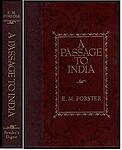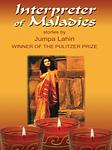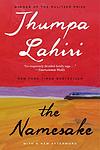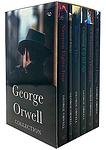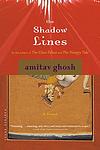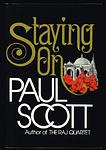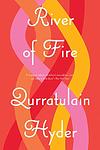The Greatest "India, Social & Cultural Fiction" Books of All Time
Click to learn how this list is calculated.
This list represents a comprehensive and trusted collection of the greatest books. Developed through a specialized algorithm, it brings together 300 'best of' book lists to form a definitive guide to the world's most acclaimed books. For those interested in how these books are chosen, additional details can be found on the rankings page.
Genres
The "India" category for books encompasses a wide range of literature that explores the history, culture, and society of India. This includes works of fiction, non-fiction, and poetry that delve into the country's rich traditions, religions, and customs, as well as its political and economic landscape. From classic novels like "A Passage to India" to contemporary works that examine modern India, this category offers readers a diverse and fascinating glimpse into one of the world's most complex and captivating nations.
Social & Cultural Fiction is a literary category that encompasses novels and stories that delve into the complexities of society and culture, exploring themes such as class, race, gender, and identity within specific social contexts. These narratives often provide a lens through which readers can examine the intricacies of human relationships and the impact of cultural norms and societal structures on individuals and communities. By offering a fictional yet reflective portrayal of real-world social dynamics, this genre invites readers to gain a deeper understanding of the diverse experiences that shape our world. Authors in this category frequently use their characters and settings to comment on contemporary issues, challenge prevailing ideologies, and provoke thought about the possibility of social change, making Social & Cultural Fiction a powerful tool for empathy and a mirror for the ever-evolving human condition.
Countries
Date Range
Reading Statistics
Click the button below to see how many of these books you've read!
Download
If you're interested in downloading this list as a CSV file for use in a spreadsheet application, you can easily do so by clicking the button below. Please note that to ensure a manageable file size and faster download, the CSV will include details for only the first 500 books.
Download-
1. Midnight's Children by Salman Rushdie
The novel tells the story of Saleem Sinai, who was born at the exact moment when India gained its independence. As a result, he shares a mystical connection with other children born at the same time, all of whom possess unique, magical abilities. As Saleem grows up, his life mirrors the political and cultural changes happening in his country, from the partition of India and Pakistan, to the Bangladesh War of Independence. The story is a blend of historical fiction and magical realism, exploring themes of identity, fate, and the power of storytelling.
-
2. A Passage to India by E. M. Forster
The novel takes place in British-ruled India, where the cultural divide between the British and the Indians is explored. The story focuses on the experiences of an Indian Muslim, Dr. Aziz, and his interactions with an English woman, Miss Quested, and her elderly friend, Mrs. Moore. After an expedition to the Marabar Caves, Miss Quested accuses Dr. Aziz of assault, leading to a trial that deepens the racial tensions and prejudices between the colonizers and the colonized. The novel is a critique of British imperialism and a study of the cultural and racial misunderstandings and ill-will between the British and the Indian people.
-
3. The God of Small Things by Arundhati Roy
This novel is a poignant tale of fraternal twins, a boy and a girl, who navigate through their childhood in Kerala, India, amidst a backdrop of political unrest and societal norms. The story, set in 1969, explores the complexities of their family's history and the tragic events that shape their lives. Their mother's transgression of caste and societal norms by having an affair with an untouchable leads to disastrous consequences, revealing the oppressive nature of the caste system and the destructive power of forbidden love. The novel also delves into themes of postcolonial identity, gender roles, and the lingering effects of trauma.
-
4. A Bend in the River by V. S. Naipaul
"A Bend in the River" is a novel that follows an Indian man, Salim, who moves from the East Coast of Africa to the heart of the continent to open a store in a small, remote town at a bend in the river. The book explores the changes that occur in the town as it evolves from a sleepy outpost to a bustling city. It also delves into Salim's personal struggles and the challenges he faces in adapting to a rapidly changing society, all set against the backdrop of post-colonial Africa.
-
5. A Fine Balance by Rohinton Mistry
"A Fine Balance" is a poignant narrative set in India during the 1970s, a time of political turmoil and upheaval. The plot revolves around four diverse characters - a widow, a young student, and two tailors - who are brought together by fate. Through their interconnected lives, the book explores themes of caste, poverty, political corruption, and the human spirit's resilience. It offers a profound exploration of the delicate balance that sustains life amidst adversity.
-
6. The Siege of Krishnapur by J. G. Farrell
Set in India during the period of the British Empire, "The Siege of Krishnapur" is a historical novel that explores the events of the 1857 Sepoy Rebellion. The narrative focuses on the British residents of the fictional town of Krishnapur as they endure a prolonged siege by Indian soldiers. The story delves into the psychological, social, and physical challenges faced by the besieged, and the gradual disintegration of their Victorian-era beliefs and lifestyle. The novel is a commentary on the British Empire, colonialism, and the clash of cultures.
-
7. Nectar in a Sieve by Kamala Markandaya
"Nectar in a Sieve" is a tale of an Indian peasant woman named Rukmani who endures the hardships of rural poverty, natural disasters, and personal tragedy, while trying to raise her children and maintain her marriage. The book explores themes of love, hope, and the strength of the human spirit against the backdrop of a rapidly changing India. Despite the constant struggles, Rukmani never loses her faith and hope, symbolizing the resilience and strength of ordinary people in the face of adversity.
-
8. Interpreter of Maladies by Jhumpa Lahiri
"Interpreter of Maladies" is a collection of nine short stories, each exploring different aspects of life, love, and identity. The stories are set in both India and America, and the characters often grapple with issues of cultural identity, displacement, and the complexities of relationships. Themes like marital issues, communication breakdowns, and the struggle to fit in are prevalent throughout the stories, offering a poignant and nuanced glimpse into the human experience.
-
9. The Namesake by Jhumpa Lahiri
The novel tells the story of Gogol Ganguli, a second-generation Indian-American, who struggles with his unique name and his dual cultural identity. Born to immigrant parents from Kolkata, India, Gogol is named after the famous Russian author, Nikolai Gogol, a decision that shapes his life in unexpected ways. As he grows up, he finds himself torn between his parents' traditional Indian values and his desire to fit into mainstream American society. This internal conflict is further complicated by his relationships with women of different cultural backgrounds. The book explores themes of identity, cultural assimilation, and the immigrant experience.
-
10. Home and the World by Rabindranath Tagore
This novel is a political and philosophical exploration set in early 20th century India during the country's struggle for independence. It revolves around three main characters: a nobleman, his wife, and his friend, a fervent nationalist. The story unfolds as the wife, initially confined to the inner quarters of their home, begins to question her societal boundaries and the idea of nationalism after meeting her husband's friend. The narrative delves into the complexities of love, freedom, and the concept of home and world, set against the backdrop of the Swadeshi movement, a part of the Indian independence movement against British rule.
-
11. The Great Railway Bazaar by Paul Theroux
"The Great Railway Bazaar" is a travelogue in which the author embarks on a four-month journey by train from London through Europe, the Middle East, the Indian subcontinent, Southeast Asia, and Siberia, and then back to Europe. The book is a vivid and insightful account of the people, cultures, landscapes, and experiences encountered during the journey, painting a unique picture of the world as seen from the perspective of a train window. The author's sharp observations and engaging storytelling make this journey as much an inner exploration as a geographical one.
-
12. Heat and Dust by Ruth Prawer Jhabvala
"Heat and Dust" is a novel set in two different time periods in India, exploring themes of colonialism, gender roles, and cultural clash. The story alternates between the 1920s, following the scandalous life of Olivia, an English colonial wife who falls in love with an Indian prince, and the 1970s, where her step-granddaughter journeys to India to uncover the truth about Olivia's life and her own identity. The narrative exposes the complexities of love, culture, and identity in the context of British colonial rule and post-colonial India.
-
13. Untouchable by Mulk Raj Anand
"Untouchable" is a novel that explores a day in the life of a young Indian man, Bakha, who belongs to the lowest caste, the Untouchables. The narrative follows Bakha's experiences of extreme discrimination and humiliation as he performs his job as a latrine cleaner. Despite the harsh realities of his life, Bakha dreams of a better future and is fascinated by the modern world and British rule. The novel provides a poignant critique of the caste system and the social inequalities in India.
-
14. Burmese Days by George Orwell
This novel is a scathing critique of British colonial rule in Burma during the 1920s. The protagonist, a disillusioned teak merchant, struggles with the bigotry and racism of his fellow Europeans, and his forbidden love for a Burmese woman. The narrative explores the effects of imperialism on both the oppressors and the oppressed, highlighting the hypocrisy, corruption, and inhumanity that result from such a system.
-
15. Clear Light of Day by Anita Desai
"Clear Light of Day" is a novel set in Old Delhi, which explores the dynamics of the Das family. The story shifts back and forth in time, reflecting on the lives of siblings Bim, Raja, Baba, and Tara, and their relationships with each other and their aunts. The narrative delves into themes of memory, time, and decay, as well as the political upheaval of the Partition of India. The novel is a poignant study of family relationships, personal change, and loss.
-
16. All about H. Hatterr by G. V. Desani
This novel is a unique blend of Eastern philosophy and Western literary technique, following the adventures of its protagonist, a British-educated Indian everyman, as he navigates the complexities of life. The narrative is filled with humor, satire, and linguistic playfulness, as the protagonist interacts with various eccentric characters and experiences numerous absurd situations. The book is a critique of both British colonialism and traditional Indian society, offering a distinctive and insightful perspective on the human condition.
-
17. In a Free State by V. S. Naipaul
"In a Free State" is a collection of three short stories and a prologue and epilogue, portraying the realities of post-colonial life and the struggles of individuals caught between their native culture and the imposed Western values. The narratives span across India, Egypt, Washington D.C., and Africa, each exploring the themes of displacement, identity crisis, and cultural conflict. The book provides a profound examination of the human condition, the concept of freedom, and the complexities of power dynamics in a post-colonial world.
-
18. The White Tiger by Aravind Adiga
"The White Tiger" is a darkly humorous novel set in modern-day India that explores the country's class struggle through the eyes of an ambitious and cunning protagonist. Born in a poor village, he moves to Delhi to work as a chauffeur for a rich family. He eventually breaks free from his life of servitude by committing an act of shocking violence, and uses his newfound freedom to become a successful entrepreneur in Bangalore. The story, told through a series of letters written to the Chinese Premier, is a scathing critique of India's social and economic disparities, and the corruption that permeates all levels of society.
-
19. The River Sutra by Gita Mehta
"The River Sutra" by Gita Mehta is a captivating novel that explores the intertwining lives of various characters along the sacred river Narmada in India. Through vivid storytelling and rich descriptions, the book delves into themes of spirituality, love, and the search for meaning in life. As the characters embark on journeys of self-discovery, the river serves as a powerful metaphor for the flow of life and the interconnectedness of all beings. With its lyrical prose and thought-provoking narrative, "The River Sutra" offers a profound exploration of the human experience and the timeless wisdom of ancient traditions.
-
20. The Jewel In The Crown by Paul Scott
Set during the final days of the British Raj in India, this novel explores the political and personal repercussions of a young British woman's rape in a fictional Indian city. The incident stirs up racial tensions and leads to a series of events that reveal the deep-seated prejudices and complexities of colonial rule. The story is a complex blend of perspectives, weaving together the lives of its diverse cast of characters, and offering a critical examination of the British colonial experience.
-
21. The Inheritance of Loss by Kiran Desai
This novel explores themes of love, loss, and the human struggle for identity amidst political unrest. Set in India during the Nepalese movement for an independent state, the narrative follows the lives of a retired judge living in the Himalayas, his granddaughter, and his cook. As the political situation worsens, each character must grapple with their own personal issues, including the judge's regret over his failed marriage and his granddaughter's struggle to find her place in the world. The cook, meanwhile, dreams of a better life for his son in the United States. The narrative weaves together these individual stories to create a poignant tapestry of human resilience in the face of adversity.
-
22. The Vice-Consul by Marguerite Duras
This novel follows the story of three lonely, dispossessed people in Calcutta, India: a troubled former French diplomat, a young French woman haunted by her past, and a poverty-stricken Indian woman. As their lives intersect, they grapple with desire, despair, and the struggle for redemption. The narrative is a complex exploration of colonialism, privilege, and the human condition, told through the lens of these three characters' tragic and intertwined lives.
-
23. The Shadow Lines by Amitav Ghosh
"The Shadow Lines" is a novel that explores themes of memory, family, and national identity through the eyes of a young boy and his experiences growing up in Calcutta, India. The narrative is framed by two major historical events: the 1964 Dhaka Riots and the 1942 World War II. The protagonist's relationships with his family and his personal experiences are juxtaposed with these events, highlighting the complexities of identity, memory, and the lasting impacts of historical events on individual lives. The novel also delves into the arbitrary nature of national borders and the shadow lines they draw between people and their histories.
-
24. Staying On by Paul Scott
Staying On focuses on a British couple, Tusker and Lucy Smalley, who decide to stay in India after the end of British rule, rather than return to England. The book explores their struggles and challenges as they try to adapt to a changing India, dealing with the loss of their privileged colonial status, their strained marriage, and their increasing isolation. The narrative delves into themes of ageing, cultural clash, and the end of an era, offering a poignant and complex depiction of post-colonial India.
-
25. River of Fire by Qurratulain Hyder
"River of Fire" is an expansive novel that spans over 2,500 years of Indian history. The narrative unfolds through the intertwined lives of four characters who are reincarnated in different eras: a Buddhist monk in 400 B.C., a court poet in the Mughal Empire, a British colonial administrator, and a modern Indian intellectual. This literary masterpiece is a reflection on the cyclical nature of history, the continuity of life and the human spirit, and the eternal quest for freedom and identity, providing a panoramic view of the socio-political evolution of the Indian subcontinent.
Reading Statistics
Click the button below to see how many of these books you've read!
Download
If you're interested in downloading this list as a CSV file for use in a spreadsheet application, you can easily do so by clicking the button below. Please note that to ensure a manageable file size and faster download, the CSV will include details for only the first 500 books.
Download
